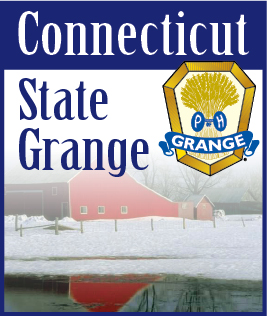 |
|
 |
|
 |
|
 |
 |
| Legislatively Speaking |
|
 |
Farm, Nutrition and Community Investment Act |
| |
By Gordon Gibson, Legislative Committee Chairman |
| |
JUNE 2007 -- The Farm, Nutrition and Community Investment Act (H.R. 2144) was recently introduced in Congress by Rep. Rosa DeLauro (D-CT) and Rep. Wayne Gilchrest (R-MD). All of the representatives from Connecticut have now signed on as co-sponsors of this bill.
A similar bill will soon be introduced on the Senate side by Sen. Charles Schumer (D-NY). The bill is designed to make all farms profitable through several new programs. One of the most important provisions of this bill is that it would be administered through the Department of Agriculture in each state with USDA having oversight for program accountability.
Unlike other programs where one set of rules for every detail must be strictly followed throughout the fifty states, this bill would give the Department of Agriculture in each state the authority to modify the programs to meet the needs of farmers and ranchers in their states. Each state will have options to use the funds in areas such as farm viability, market and product development, local and regional infrastructure needs, “Buy Local” efforts and consumer education.
The new bill would provide increased funding for farmland preservation and modify existing federal programs to coordinate better with state and local farmland preservation programs. It would also eliminate the capital gains tax on the sale of farmland preservation easements. Under the present law, some farmers who have a very low cost basis for their land have had to pay a major portion of the proceeds from the sale of their federal income tax return. Other farmers have not sold their development rights because most everything they receive for them would go to the government in taxes.
As the United States seeks to become more energy self-sufficient, the new farm bill would expand the ability to develop sources of renewable energy produced by farm operations and improve on farm-energy efficiency. Before farms had electricity available they relied on windmills to pump water and perform other chores. Milk was often cooled by running water from a brook or spring through the tank where the cans were placed. As energy costs are increasing rapidly, such low technology processes are again becoming viable. The aroma of manure spread on the fields comes from gases given off as the manure breaks down into fertilizer. With modern technology, many of these gases can be collected and used as fuel to heat buildings or to generate electricity.
The bill would reauthorize and strengthen existing forestry management programs with emphasis on better forest planning, additional stewardship incentives for forest owners and grants to help towns purchase forest lands that are important to their communities. Today trees are a crop that is planted, nurtured and harvested, just like many other crops. The major difference is that there are years from planting to harvest rather than a single growing season.
While our farmers are producing food to feed our nation, many people are going hungry or not getting a balanced diet because they cannot afford enough food to feed themselves and their families. The new farm bill will expand food stamp program benefits, expand eligibility and simplify the application process. It will also expand support for farmers market promotion and nutrition programs. It will also expand fresh fruit and vegetable programs to schools and will also allow for regional preferences to different types of foods in the food purchasing programs.
Other parts of the new farm bill will provide a better economic safety net for dairy farmers, create a new national organic food certification program and expand and improve crop insurance and working lands conservation programs.
While I was in Washington for the National Grange Legislative Fly-In program, I had the opportunity to meet with Rep. Rosa DeLauro and Brian Ronholm, her legislative assistant for agriculture. I explained the Grange’s position on the 2007 Farm Bill to Rep. DeLauro and she responded by telling me what was in the new Farm, Nutrition, and Community Investment Act.
The first thing we can all do to help is to contact your representative in Congress and thank them for being a co-sponsor of the Farm, Nutrition and Community Investment Act (H.R. 2144).
|
| |
|
| |
|
Your rating has been saved
|
|
|
|
|
|
|
 |
| |
 |
|
|
|
|
